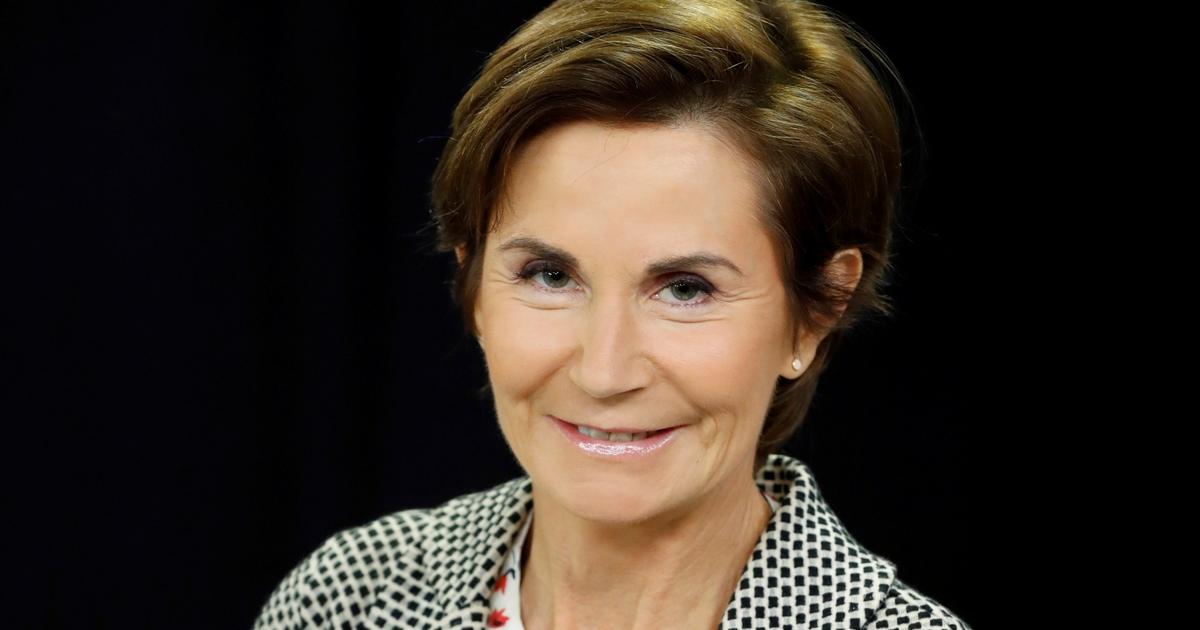Martin Steffens is associate of philosophy, professor of philosophy in Khâgne, lecturer and columnist for
La Croix
and
La Vie
.
He is notably the author of
Eternity received
(ed. Desclée de Brouwer, October 2017) and
True love, At the threshold of the other
(ed. Salvator, September 2018).
This Wednesday he released a collection of meditations
Walking the night, Texts of patience and resistance
(ed. Desclée de Brouwer).
FIGAROVOX.
- Your work is an aggregate of chronicles separated into three parts, according to the three wise men.
Why did you choose this approach?
Martin STEFFENS.
-
Three Kings are nocturnal beings.
It is in the dead of night that they meet the salvation of the world.
And again, in the form of a baby.
Everything is shrouded in mystery for them.
As I indicate in the prologue to the book, with the coronavirus, we entered one of those nights.
Like an eclipse of the human.
In the space of a few weeks, all the places, cafes, theaters, schools and churches, became inhospitable.
Read also:
Covid-19: "In Quebec, ban on receiving a friend at home"
Arrows, variegated with forbidden meanings, covered with infantilizing or morbid instructions.
Like Mary and Joseph, we no longer have anywhere to go to bring the best we have into the world.
The world is made, as under Herod, census, fear, control.
Because, like Herod, we fear the child who will be born there.
The child symbolizes life as it springs, life as it risks itself, in reverse of this morality of self-preservation which now predominates.
The handshake, the hug, the kiss, the crowd are factors of union, communion, life for the community, yet they are today declared and perceived as factors of contagion and death.
What could be the repercussions of this great reversal, of a particularly strong “contactless”?
One should ask: what "are" the repercussions?
Because already women and men commit suicide or are admitted to psychiatric hospitals.
The others hold on by telling themselves that this is only a parenthesis.
But parentheses only exist in grammar since those which History opens, it does not close.
We are still waiting for the nuclear parenthesis opened by Hiroshima to close.
And the Communists never succeeded in closing this “simple parenthesis” which they called “the dictatorship of the proletariat”.
Thus, because we are asked to do so, we have "adopted the right reflexes", those of physical and social distancing.
But, once they're caught, how long will it take us to lose those reflexes?
The mask thus beautifully expresses the substitutability of each man for any other
“Contactless”, you say.
It's ironic that contactless payment was extended just before lockdown.
It symbolizes this more liquid world, where the faces, erased, pass one on top of the other, without hanging on.
The mask thus magnificently expresses the substitutability of each man for any other.
This is why this liquid world is also a liquid world.
A world worthy of the name is the possibility of unique encounters.
To make a world, you need the hand that you extend, the risk of touching, the arms that open, the invitation of friends to which you can respond spontaneously ...
“What is sacred today is the human person” you write.
Is the declared primacy of life over profits of Christian inspiration?
Shouldn't we rather go and look for Hobbes, who sees - thus taking the opposite view of Aristotle and the Church - the only end of life as being survival, that is to say that life has no other finality than oneself?
Of course!
The Church, like any philosophy of humanist inspiration, finds itself trapped when it comes to the care of the most vulnerable.
Who would want to kill an old person?
Thus, those who rightly call to guard in the face of the epidemic would in reality be murderers who do not say their name, perhaps Nazis ...
If we think carefully, we see that a question of formidable gravity arises here.
Is life in itself its own goal?
Is it still possible to prefer to die for a life worthy of the name rather than to live dying of fear?
I think of this central scene from the
Diary of a country priest of
Bernanos, when the humble priest goes to Madame la Comtesse and collects from her, after a dialogue of mad intensity and violence, the confession that since the death of her eighteen-month-old son, she hates the daughter who is left to her.
The Countess, listened to as she has never been, but exhausted by this admission, died the following night.
Read also:
Fabrice Hadjadj: "The Covid-19 is the microbial viral plus the digital viral"
Caring for the soul would be dangerous for health!
Was it necessary to spare the Countess, already tired?
I do not believe that.
At the end of her confession, the Countess finds hope again.
The part of love that connects us to the world, what Scripture calls our “heart of flesh”, is precisely what is “the most fragile”.
The proof: this is what can die before our body.
Because of this fragility of the soul, because despair arrives so quickly, we do not have the right to abandon our elders in EHPADs, nor to kill young people any desire to invest this world.
You quote Hannah Arendt, who sees the family unit as the last bubble of freedom against the totalitarian regime.
Should we be concerned about the generalization of work at home for its ability to confuse these two spheres of life?
Absolutely.
Our President has just banned homeschooling.
No doubt he should above all ban school "in the house", what has been called "distancing" but which, throwing children to screens and depriving them of each other, should be called "dist-hell. ".
Humanity has been built by establishing thresholds.
There is the doorstep, where to welcome the guest, or refuse the importunate.
There is the church square, like an invitation to enter.
There are the limits of your body, which I do not have the right, without your consent, to override, etc.
There is the public and the private, the sacred and the profane.
Nowadays, we institute barrier gestures, we saturate the public space with removable metal barriers… but we generously neglect all symbolic thresholds.
We institute barrier gestures (...) but we generously neglect all symbolic thresholds.
My living room, when it's not the bedroom, becomes my office and my children attend my meetings.
Our founding thresholds were customs, such as politeness, decency, modesty, which preserved them.
Also, the more the symbolic thresholds are ignored, the more we will need restrictive protocols, physical barriers, debilitating instructions that loop through our stations.
The destruction of manners, of the ethos of our civilization, will pass through their technical and police translation.
You put a lot of emphasis in your work on the importance of resisting the grip of the state and the market in our lives.
Social networks,
Netflix
,
Deliveroo
have seen their attendance explode during confinement while the state has granted itself an unimaginable extent just a few months ago.
What approach should be adopted to preserve the freedom of the individual and the community in the face of this pincer?
I do not know yet.
For now, I tell my children not to get used to this world which requires you, as a moral act, to no longer approach others.
I ask them to support with their good will the teachers who wear themselves out behind their masks, their music teachers who, despite the complications, put on shows and do everything to maintain them.
Read also:
Joseph Macé-Scaron: "The health crisis has brought death back to life"
What is practical, with this health crisis, but also political and anthropological, is that taking care of the relationship, inviting yourself into the house, cultivating joy in the family, is already, in itself, an act of resistance.
This is also why it is not useful to know what to do.
Commenting on Hannah Arendt, Paul Ricoeur writes:
"When citizens no longer recognize their power in institutions that have become violent, then it is in civil disobedience that real power takes refuge"
.
What Arendt calls power is what spontaneously arises from the union of several citizens when they prefer the care of the common destiny to their private, bourgeois happiness.
I tell my children not to get used to this world which requires of you, as a moral act, to no longer approach others
What binds them then, I would call a "non possumus".
“Non possumus sine dominico” (we cannot live without Sunday) This is what the Christians of Abitynia opposed to the emperor Diocletian.
“Sine facie non possumus”: we cannot live without a face, we would say today.
We cannot grow up in the midst of this generalized, encouraged, instituted dissociation.
What does this "no" consist of?
On the part of the bosses, the police, the prefects, the teachers, already apply themselves not to be zealous.
Do not pay a fine of 135 euros to a man who walks his dog at 2 am… Little by little, we will see that behind this “no”, there is a “we”.
And a "yes" to everything we love: freedom, relationships, all things which suppose that the State, while limiting the power of GAFAM on our life, holds itself in its right place.
So let's live this “non possumus” and the rest, I mean “what to do”, will be given to us in addition.







